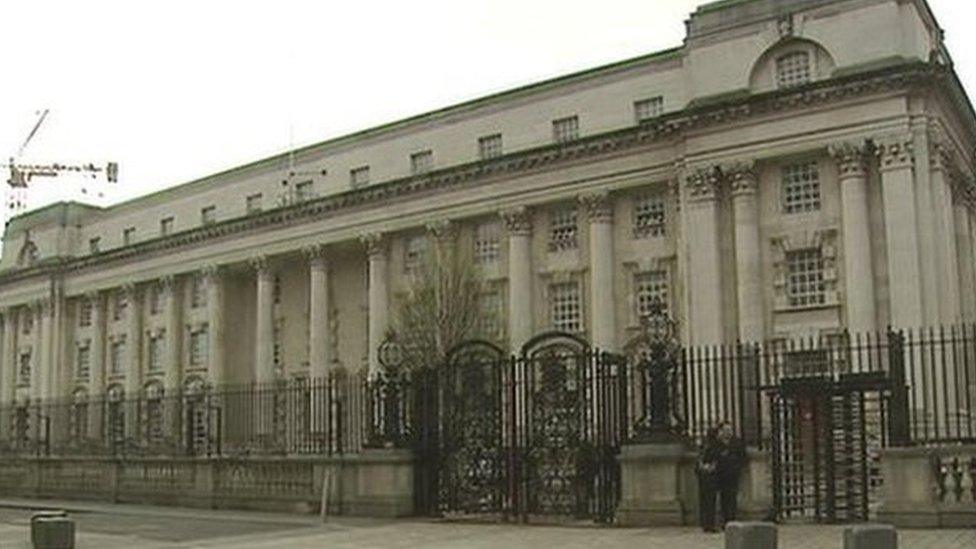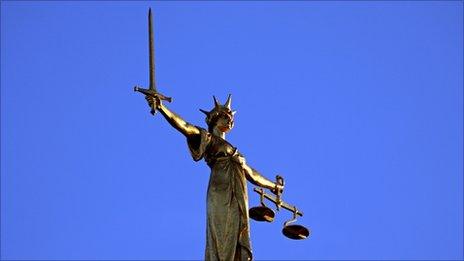MPs approve extension of non-jury trials in Northern Ireland
- Published

MPs have approved an order extending non-jury trials in Northern Ireland.
The provisions allow the director of public prosecutions to state that a trial should be conducted without a jury in a specific case.
Northern Ireland Minister Chloe Smith said the government wants to end the "exceptional" arrangements.
However, she said it is important violence is not allowed to "undermine the criminal justice system" for the time being.
According to guidance from the Northern Ireland Office, there is "a strong presumption" for jury trials, but the "severe threat from Northern Ireland-related terrorism and the presence of violent paramilitary groups continues to pose risks" that can necessitate non-jury trials.
Labour support
The Labour Party backed the extension.
Shadow Northern Ireland Minister Stephen Pound said the current security situation is "serious" and the order "goes a long way" to assuaging concerns over threats posed by terrorists and their associates at trials.
North Down independent unionist MP Sylvia Hermon asked if that position is shared by the Labour leader Jeremy Corbyn, but Mr Pound said that is "above my pay grade".
At the height of paramilitary violence in Northern Ireland, hundreds of people were tried without a jury every year.
Diplock courts
The non-jury system was named after Lord Diplock, a former senior judge and Law Lord.
During the height of the Troubles, he chaired a commission that examined proposed changes in the administration of justice in an attempt to deal with terrorist offences.
The commission published its report in December 1972 and non-jury courts were introduced the following year.
The introduction of Diplock courts were opposed by civil liberty organisations and both nationalists and republicans.
At their peak, more than 300 trials per year were held without a jury.
The government technically abolished the old Diplock courts in 2007.
However, the government gave the director of public prosecutions temporary power to decide that exceptional cases should be tried without a jury if he believed there was still a risk of jurors being intimidated.
- Published3 July 2013
